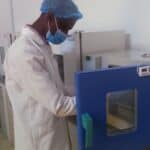-
Asked by Jackson mwangemi on 16 Jul 2025.0
Question: Is it possible to create practical useful platinum air battery
- Keywords:
-
Justa Mwangi answered on 16 Jul 2025:
Research has shown that platinum, or platinum-gold nanoparticles, can act as effective catalysts in metal-air batteries, particularly in lithium-air and zinc-air systems. These materials enhance the efficiency of both the oxygen reduction reaction (ORR) during discharge and the oxygen evolution reaction (OER) during recharge.
However, despite these promising findings, significant challenges remain in developing a practical and useful platinum-air battery:High Cost and Limited Availability: Platinum is a very expensive and scarce precious metal, making its widespread commercialization as a battery component problematic.
Stability Issues: Platinum catalysts can be poisoned by intermediate species during battery operation, and the carbon supports often used with platinum can degrade, reducing the battery’s overall lifespan.
Electrolyte Problems: Metal-air batteries, including those utilizing platinum, face issues with electrolyte stability, evaporation, and the formation of undesirable byproducts that hinder performance.Current status of platinum in metal-air battery research
Currently, research focuses on:Reducing platinum content: Developing catalysts with lower platinum content or exploring platinum alloys to reduce cost.
Developing alternative catalysts: Investigating more cost-effective and abundant alternatives, such as various metal oxides, transition metal-nitrogen-carbon (M-N-C) catalysts, and carbon-based catalysts (like graphene and carbon nanotubes).
Improving battery design: Focusing on optimizing the structure of air cathodes and exploring solid-state electrolytes to address limitations like dendrite formation and electrolyte evaporation.While research continues to explore the potential benefits of platinum-containing catalysts in metal-air batteries, the high cost, limited availability, and challenges with stability currently hinder the creation of a widely practical and useful platinum-air battery for large-scale applications. Researchers are actively pursuing solutions to these challenges, including investigating cheaper and more readily available alternatives to platinum.
Latest Questions
-
Is it true that ulcers is caused by stress?
-
Is there any prove that shows there’s existing creatures in other planets in exception of planet earth?
-
After four months of pregnancy, the ovary can be removed and the pregnancy remains still gets sustained to the end of
-
What do arthropologist do as professionals
-
what are the core mission of your organisation
Latest Comments
-
Why has it been difficult to make a vaccine for HIV yet it took a short time to make one for COVID-19? (1 comment)
-
Has the tuberculosis cure been foud (1 comment)
-
How long does a research project take? (1 comment)
-
Does your research help the people and the community (2 comments)
-
the time you got the price how did you feel (1 comment)







Comments